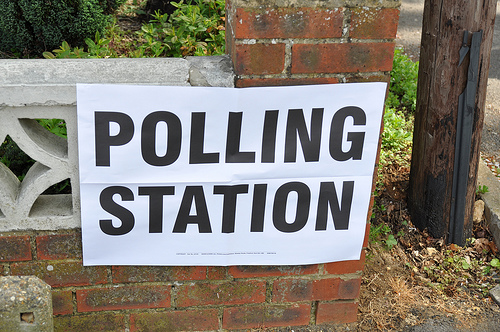

Author’s note: During the US election season, we will be bombarded with a chorus if not cacophony of political coverage, punditry, and even misrepresentation of the presidential campaign. To help us navigate this noisy time, I will be presenting a series of empirical snapshots on how evangelical Christians perceive the two presumptive nominees for president. By “letting the data speak,” I will present a nonpartisan analysis of the social and political attitudes of our fellow Christians. While the findings should challenge our preconceptions and convictions, it is not an endorsement or critique of either candidate. Instead, my hope is that it spurs greater conversation and discussion about how our faith can and should translate into our perceptions and participation in the presidential election. For the first post in the series, on how to read the polls, here. For the second post, on what predicts Evangelical approval or disapproval of Trump, click, here. This is the third post, on what predicts Evangelical approval or disapproval of Clinton. For the fourth post, on Engaging the Election: The Lesser of Two Evils for Evangelical Voters?, click here.
What social demographics and political attitudes predict evangelicals’ feeling towards Hilary Clinton? And do these factors also shape non-evangelical perceptions of Clinton as well?
Using the 2016 National Election Study (described here), I compare how evangelicals and non-evangelicals rate their feelings towards Clinton. Feeling scores from 0 to 49 reflect disapproval, 50 is neutral, and scores 51 to 100 indicate approval. This measure reveals not just the directionality of respondents’ attitudes (if they approve or disapprove) but also the intensity of favorability (with scores closer to 0 and 100 representing stronger feelings of disapproval and approval respectively).
I find political attitudes predict evangelicals’ feelings toward Clinton. Specifically, Democrats and those with more positive perceptions of President Obama report more favorability of Clinton.
In my analysis, I use multivariate regression models that include 27 potential predictors grouped into four categories: social demographics (gender, age, race, education, marital status, family income, church attendance), political attitudes (party identification, political ideology, interest in politics, voting in 2012, preference for principled candidate, approval of President Obama, approval of Donald Trump), social attitudes (approval of Muslims; perception of discrimination against black people, white people, women, and Christians; economic confidence; economic opportunity; intensity of American identity), and preferences about specific policies (immigration, religious exemptions in business, ISIS, global warming).
The results (full statistical results here) identify two key predictors of evangelicals’ approval of Clinton. First, Democrats are more approving of Clinton than Republicans and Independents. Evangelicals who are Democrats approve of Clinton with an average feeling score of 69. By contrast, Republican and Independent evangelicals strongly disapprove of Clinton with average scores of 14 and 26.
| Predicting Approval of Clinton among Evangelicals | |
| Social Demographics | None |
| Political Attitudes | Democratic
Approval of President Obama |
| Social Attitudes | None |
| Policy Preferences | None |
Second, approval of President Obama predicts higher approval of Clinton. Evangelicals who disapprove of President Obama strongly disapprove of Clinton with an average feeling score of only 13. By comparison, evangelicals who approve of President Obama strongly approve of Clinton with an average score of 73.
While political attitudes predict evangelicals’ approval of Clinton, no social demographic, social attitude, or policy preference has a statistically significant effect on perceptions.
To contextualize these findings, I use the same multivariate regression model to identify what factors predict approval of Clinton among non-evangelicals. The results reveal non-evangelicals’ perceptions of Clinton seem to be motivated by a different set of factors than evangelicals.
| Predicting Approval of Clinton among Non-Evangelicals | |
| Social Demographics | Age
Non-White |
| Political Attitudes | Democrat
Prefer non-ideologue candidate Approval of President Obama |
| Social Attitudes | Discrimination against women
Being American not critical to identity Higher economic confidence |
| Policy Preferences | Immigration bad for the country
Oppose religious exceptions for businesses |
Among evangelicals, no social demographic predicts approval of Clinton. However, among non-evangelicals, older people and non-white people have higher approval of Clinton. No social attitudes predict evangelicals’ perceptions of Clinton either. However, non-evangelicals who perceive greater discrimination against women, do not report being American is critical to their identity, and have higher economic confidence have more favorable attitudes toward Clinton. Finally, while no policy preference predicts evangelicals’ perceptions of Clinton, non-evangelicals who believe immigration is bad for the country and oppose religious exceptions for businesses are more favorable towards Clinton.
Evangelicals and non-evangelicals are similar in the political attitudes that motivate approval of Clinton. Both Democratic Party affiliation and approval of President Obama predict perceptions of Clinton. Non-evangelicals who believe politicians should not be ideologues are also more approving of Clinton.
As a robustness check, I compare the magnitude of statistically significant predictors identified by the evangelical and non-evangelical models. Only perceptions of discrimination against women have statistically significant differential effects among evangelicals and non-evangelicals. This implies that the belief of greater discrimination against women has a greater effect in increasingly positive perceptions of Clinton among non-evangelicals than evangelicals.
Therefore, with the exception of attitudes about perceived discrimination against women, there do not appear to be significant differences in the factors shaping evangelicals’ and non-evangelicals’ perceptions of Clinton.
Joshua Su-Ya Wu is a husband, father, pastor’s kid, and social scientist seeking to faithfully reflect Christ in all aspects of his life. He has a doctorate in Political Science from The Ohio State University, works in analytics and data science, and writes about data analytics at Reasonable Research and the intersection of faith and culture at Stuff I Didn’t Learn in Church. He currently lives in Rochester New York with his wife and two kids, and can be reached on Linkedin or on Facebook

Leave a Reply